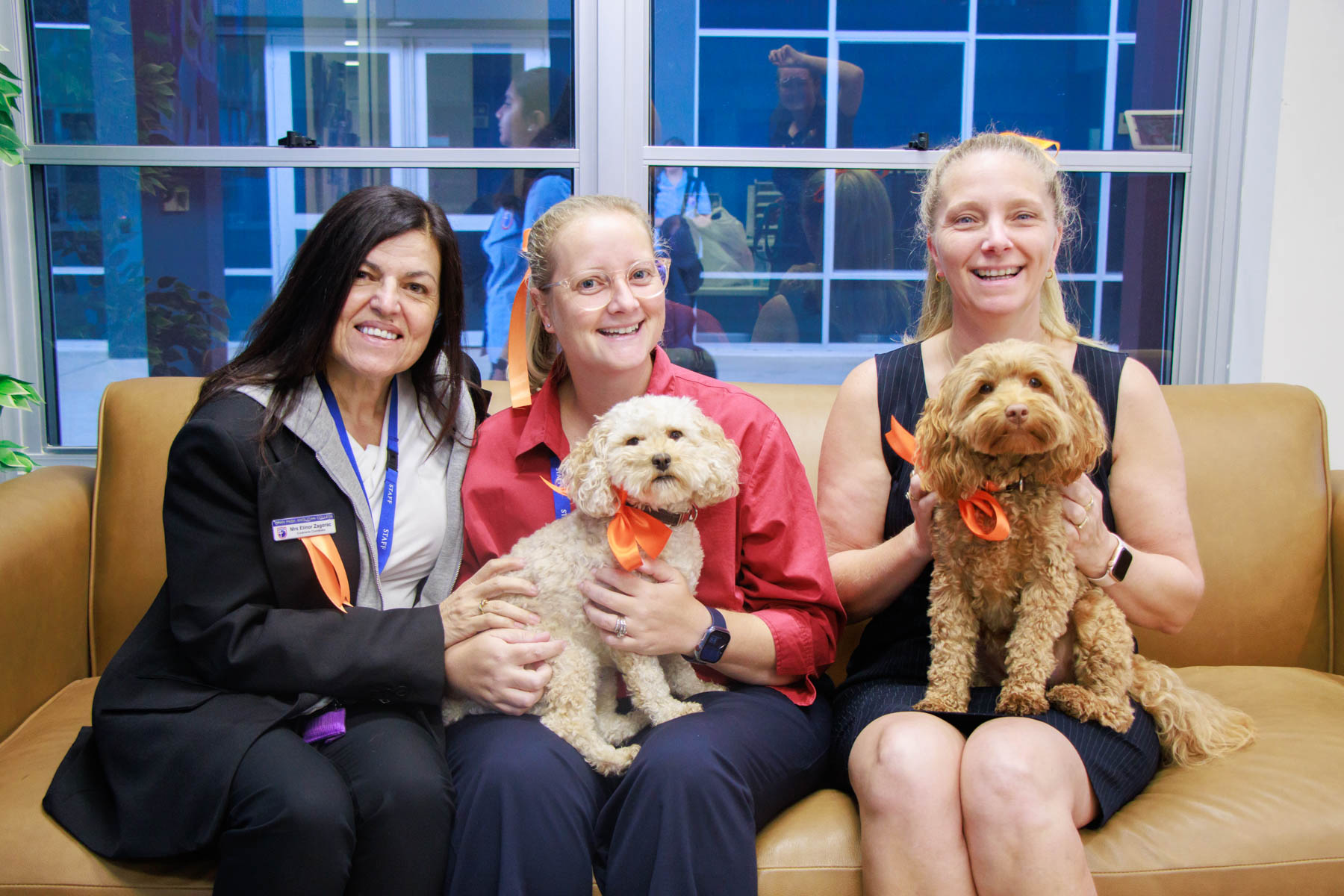Reconnecting in a Digital Age
As we reach the end of Week 9 of the term, it has been wonderful to see the energy and enthusiasm of our students as they participate in a variety of activities across the College. From the excitement of the Junior School Disco (thank you to our amazing Parents & Friends Association for their assistance with this event) to the camaraderie displayed at our sporting carnivals, and the vibrant orange celebrations of Harmony Day, our students have embraced these opportunities to connect, grow, and celebrate our college community. These events highlight the importance of shared experiences and real-world engagement, reinforcing the values we hold dear.
In our ever-connected world, the impact of digital technology on young people has become a pressing concern. In his book The Anxious Generation, psychologist Jonathan Haidt presents compelling research showing how the rise of smartphones and social media has contributed to increased anxiety, depression and social disconnection in young people. As educators and parents, we must work together to support our children in developing healthy digital habits and ensuring their wellbeing.
The Australian Government’s recent decision to introduce laws banning social media access for children under 16 highlights the growing recognition of these risks. While technology has many benefits, the dangers of excessive screen time—including sleep disruption, reduced physical activity, and social isolation—cannot be ignored. As a college that values holistic student development, we strongly encourage families to promote a balanced lifestyle that prioritises real-life connections over virtual engagement.
Encouraging Real-World Engagement
Technology plays a valuable role in education, providing students with access to information, collaboration opportunities, and tools for creative learning. At OPAC, we embrace technology to enhance learning experiences, critical thinking, and digital literacy. However, it is equally important that students have time away from screens to engage in real-world interactions, develop resilience, and strengthen their wellbeing.
Children thrive when they are physically active, socially engaged and present in their environment. Here are some key ways we can help our students disconnect from screens and reconnect with life:
Encourage Outdoor Play & Exercise
Physical activity is crucial for mental and physical health. Whether through team sports, bike rides, or simple outdoor play, movement is an essential part of childhood.
Foster Face-to-Face Conversations
Meaningful relationships are built through real-world interactions. Encouraging family dinners without screens, playdates, and involvement in community activities helps develop essential social skills.
Support Healthy Sleep Habits
The blue light from screens interferes with sleep, which is vital for learning and emotional regulation. Establishing screen-free times before bed can significantly improve sleep quality.
Model Digital Balance
Children learn from what they see. By setting healthy technology habits as adults—such as putting phones away during meals and prioritising in-person communication—we can help guide them toward better choices.
We encourage families to create healthy boundaries for technology use at home by designating times for device-free activities, outdoor play, and face-to-face conversations. Finding a balance between using technology for learning and engaging in real-life experiences is key to developing confident, balanced and thriving young people.
At OPAC, we remain committed to fostering a learning environment where students are empowered to be present, engaged and emotionally resilient. Let’s work together to create a culture where our children feel safe, connected, and free to grow without the constant pressures of the digital world.
Thank you for your ongoing support in helping us nurture strong, healthy, and thriving young people.
God bless,
Mrs Naomi Wilkins
Principal
“Do not conform to the pattern of this world, but be transformed by the renewing of your mind. Then you will be able to test and approve what God’s will is—his good, pleasing and perfect will.”
Romans 12:2



